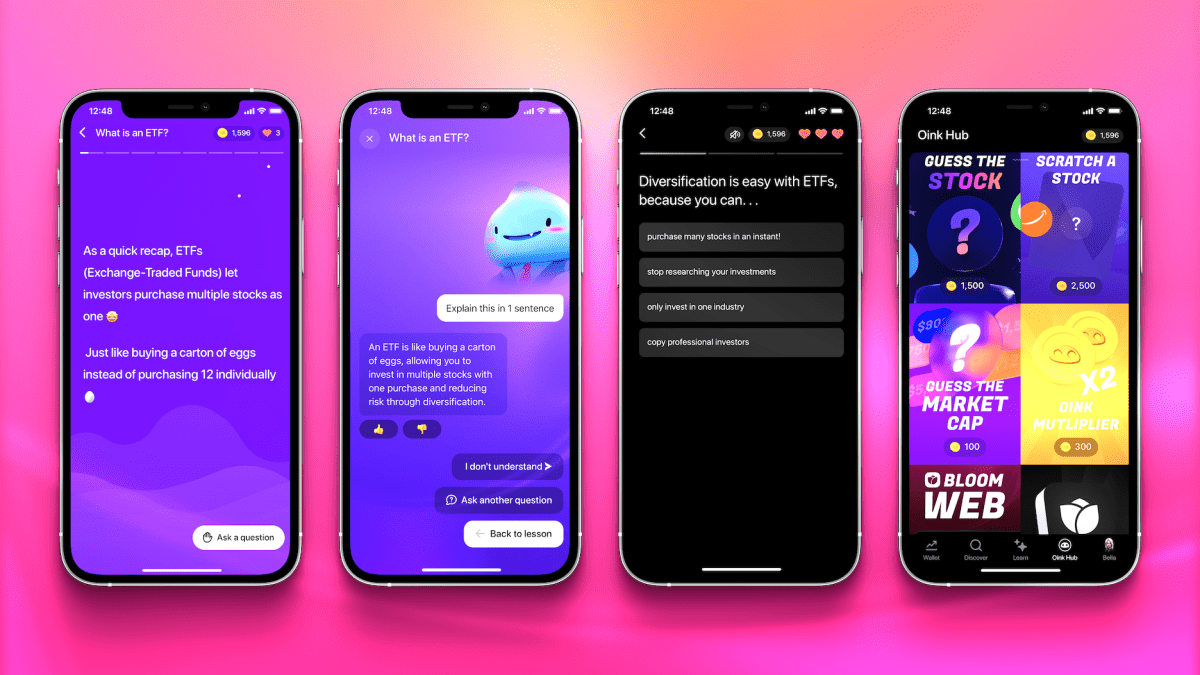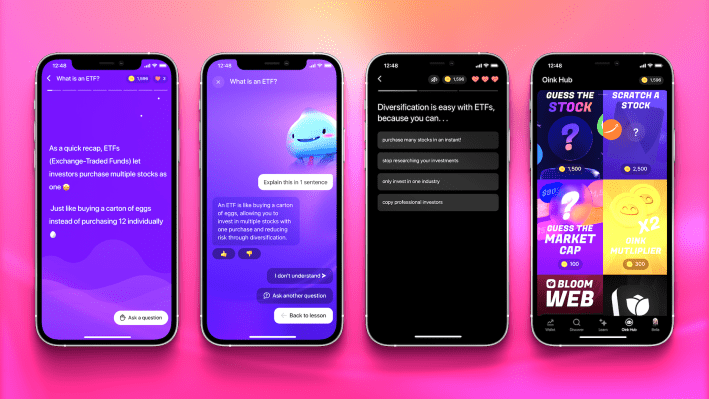
Bloom wants to teach Gen Z how to build wealth

Bloom, a zero-commission stock investing tool for teenage investors, reached 1 million downloads after launching in February 2022.
The startup founded by Allan Maman and Sam Yang provides a brokerage account and teaches those aged 13 and older how to build wealth through interactive lessons on investing, stocks and finance. So far, users have taken over 10 million lessons, Maman told TechCrunch.
If Maman’s name looks familiar, that’s because he is credited with making a better version of the fidget spinner that helped the devices go viral. Yang, who took Bloom through Y Combinator in the Winter 2021 batch, previously built an AI-based photo app with more than 250,000 users.
“My co-founder and I came into some money from jobs, and we realized when we tried to invest it, there was no platform for learning how to invest,” Maman told TechCrunch. “Existing platforms want to give you free stocks or free trades, but don’t actually teach you the basic fundamentals of investing.”
That’s when Maman and Yang decided to create their own teen investing app. Bloom has an Instagram-like structure that provides educational material and quizzes for reinforcement. The way the app incentivizes learning is a reward mechanism. For example, if the user gets the quizzes correct, they get points, which is the app’s currency, to spend within the app.
Bloom costs $15 a month or $120 for a year, and there are no minimums for the account balance. In addition to reaching the 1 million download milestone, Maman said the company reached a seven-figure annual recurring revenue in the past year.
The company is joining a space where startups, like Copper, Greenlight and others are expanding. Bloom has raised, in total, $4.4 million in seed funding from investors, much of it in 2022. Investors include Contrary, Slow Ventures, Offline Ventures, Rocketship VC, Slope and a group of angel investors, including Andrew Yang.
Also during that time, Maman and Yang saw the makeup of Bloom’s users flip from younger teenagers to people aged 18 to 25. In fact, that age range now accounts for nearly three-quarters of Bloom’s current user base, Maman said.
That has gotten the pair thinking about what products to offer in the future.
“We’re building out things like retirement accounts and more freemium-type modules,” Maman said. “We want users to stick with us for the long-term.”


